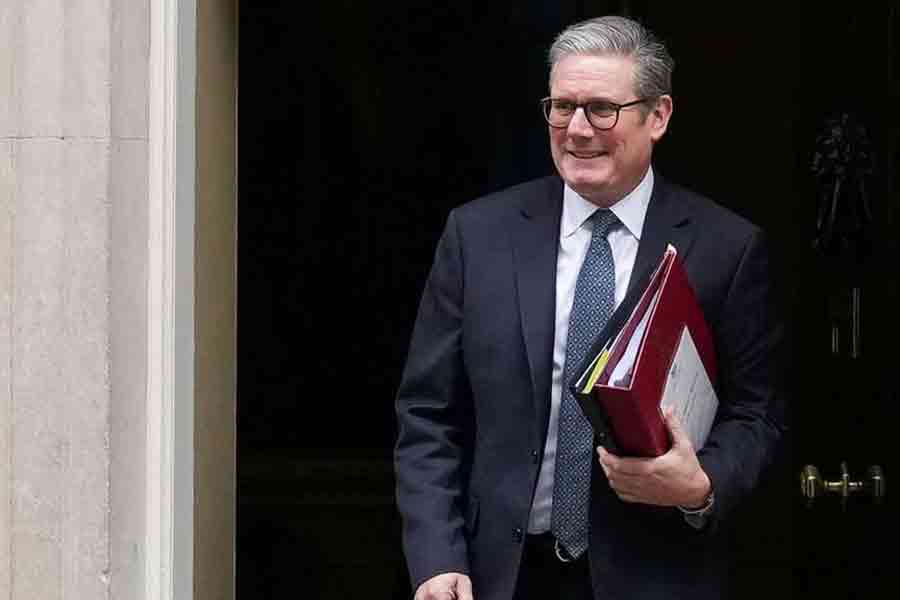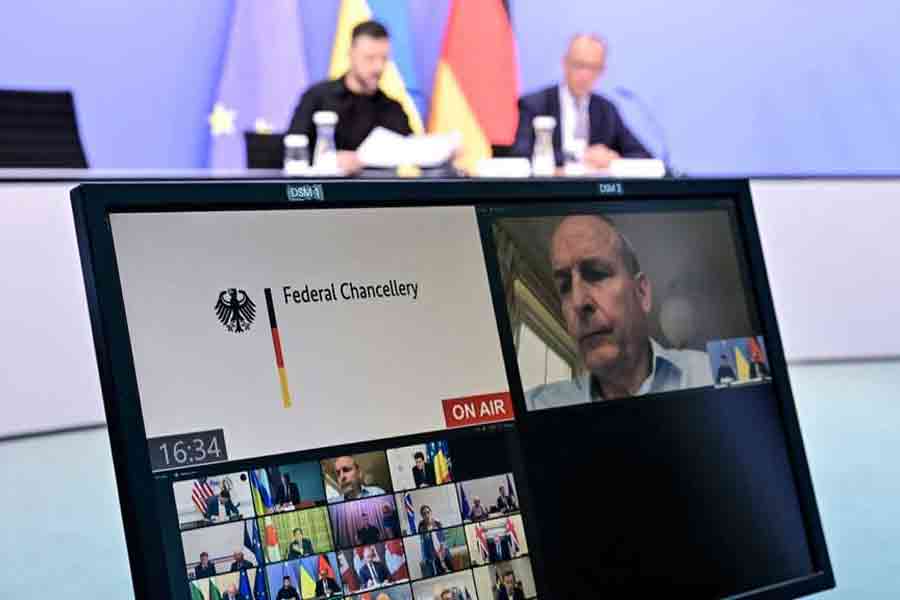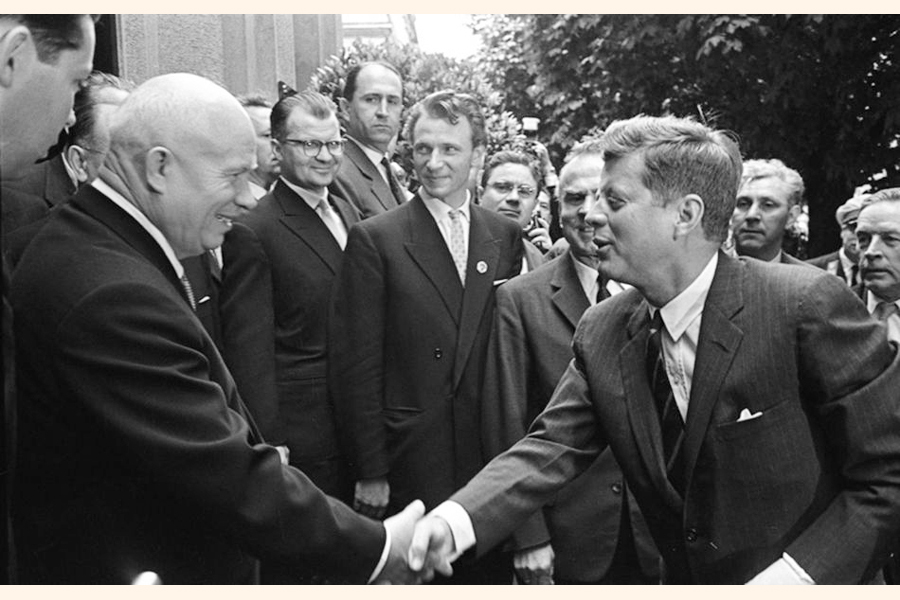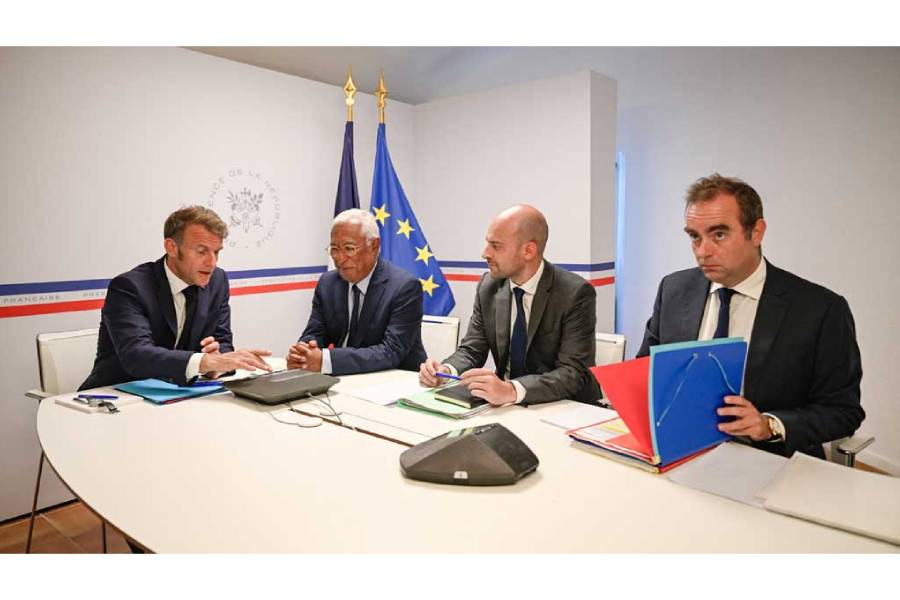A brief history of summits in our time
Syed Badrul Ahsan
Published :
Aug 13, 2025 22:30
Updated :
Aug 14, 2025 00:36
Donald Trump and Vladimir Putin will be meeting in Alaska on Friday in what has been billed as a summit. And the summit will focus on the war between Ukraine and Russia that has been raging for more than three years. That is when a question comes up: Why has Ukraine's Volodymyr Zelensky not been invited to Alaska? If Trump's role is to act as a broker between Moscow and Kyiv, he could have done the diplomatic thing of bringing Putin and Zelensky together, in his presence.
But Trump has not done that, in the expectation that he can have the door opened to a bilateral meeting in the near future between the Presidents of Russia and Ukraine. That again raises the question of whether, given the bellicosity Putin and Zelensky have been demonstrating toward each other, a Moscow-Kyiv summit will at all take place without Washington being present on the scene.
In the not so distant past, American administrations carefully assisted parties in conflict to come together in a search for peace in such global regions as the Middle East. President Jimmy Carter brought Egypt's Anwar Sadat and Israel's Menachem Begin together in the 1970s. In the 1990s, it fell to President Bill Clinton to have Yasser Arafat, Yitzhak Rabin and Shimon Peres work out the details of a peace deal for their region.
Summits are serious affairs, different from official or state visits by heads of state or government. They involve either the leaders of two states tied to seemingly intractable conflicts or are moves by statesmen attempting to have leaders of nations engaged in conflict with one another, in that military sense of the meaning, speak to each other in the presence of their hosts.
But with Donald Trump, summitry has not quite been a serious affair. One need only go back to his much touted meetings with North Korea's Kim Jong-Un, summits which yielded little in terms of substance. Which raises the apprehension that the Alaska summit may not have much on offer. Much hype will be there, of course. But hype has never made a success of diplomacy.
When leaders of nations wary of each other meet, they do so with full preparation for the points they mean to articulate during their summit. The summit between President Richard Nixon and Mao Zedong/Zhou En-lai in February 1972 was a carefully organised coming together of leaders intellectually and diplomatically prepared to present their ideas before each other.
In similar fashion, the summits between Nixon and Soviet leader Leonid Brezhnev, beginning in 1972, were focused affairs, the agenda being the issue of a promotion of détente even as both Moscow and Washington were fully aware of the need to maintain their positions at the talks without jeopardising their national interests.
Summits are also occasions when leaders test each other, often to the point of trying to gauge one another's resilience in the face of hard negotiations. The experienced Nikita Khrushchev was clearly determined to subject the new US President John Kennedy to nervousness at their summit in Vienna in 1961. It was a meeting which had Kennedy rattled and the Soviet leader feeling rather triumphant in the feeling that he had bested the American leader. The summit achieved nothing, unless of course a deepening of the Cold War could be measured in terms of achievement.
Summitry by mediation, which ought to have been a thought with the Trump administration, was diplomacy the Soviet Union deployed in bringing the leaders of India and Pakistan to Tashkent for peace talks in the aftermath of the September 1965 war between their two countries. Alexei Kosygin carefully orchestrated the occasion, to the point of ensuring that President Ayub Khan and Prime Minister Lal Bahadur Shastri made their entry to the summit hall through different doors but at the same time. Premier Kosygin and Foreign Minister Andrei Gromyko were rewarded for their diligence when Ayub and Shastri initialled the Tashkent Declaration in January 1966.
But third party mediation was not required the next time India and Pakistan went to war, this time over Bangladesh, in December 1971. The summit in Simla in July 1972 was a bilateral arrangement arrived at by Prime Minister Indira Gandhi and President Zulfikar Ali Bhutto. It resulted in the Simla Agreement, which was purely a statement defining the future course of ties between the two countries. Given that Pakistan's eastern wing had seven months earlier broken away to become the independent nation of Bangladesh, the Simla Agreement stayed clear of any statement on it.
Not until June 1974 did Bangladesh and Pakistan engage in summitry when Bhutto visited Dhaka at the head of an 80-member delegation. The negotiations, with Bangabandhu Sheikh Mujibur Rahman leading the Bangladesh delegation, produced no result. No agreement was reached on a sharing of the assets and liabilities of pre-1971 Pakistan as well as the repatriation to Pakistan of Biharis stranded in Bangladesh. No joint statement or joint communique was issued at the end of the summit. It was a pointer to the long road the two countries would need to travel before the bitterness engendered between them in 1971 could be replaced by normal ties.
There are moments when summits, before they actually take place, project all the signs of drama. In the weeks before new Soviet leader Mikhail Gorbachev and US President Ronald Reagan met in Geneva in late 1985, the media in the West busied themselves in predictions of how Reagan would deal with a relatively young and agile Gorbachev. In the end, the summit went off well and in subsequent years the two leaders got along very well with each other. Both Gorbachev and Reagan needed to deal with knotty issues of the Cold War. They did the job with noticeable finesse.
Some summits leave a lasting impact on succeeding generations. During the Second World War, the summits attended by Franklin Roosevelt, Josef Stalin and Winston Churchill in Tehran and Yalta, followed by the summit in Potsdam which Roosevelt's successor Harry Truman attended were to prove instrumental in a reshaping of the world following the collapse of Nazi Germany, Fascist Italy and Imperial Japan.
Summits abjure theatrics. They are not for leaders unprepared on issues which need thrashing out at the table. They are not about Presidents and Prime Ministers driven by a desire to play to the gallery or impress the public. All of this leaves one wondering about the Trump-Putin summit in Alaska, about its results or, in a worst case scenario, about its being a sad waste of time.
Putin knows what he wants. History informs us that Trump is not in the league of Kennedy or Nixon or Carter or Clinton, for diplomacy is an area he has not mastered.






 War Archive
War Archive



































